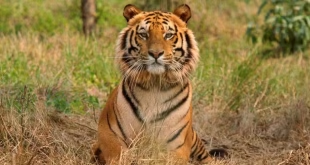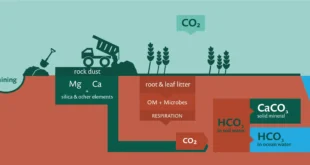- Recently, a fossil unearthed in central Montana (US) of a species named Syllipsimopodibideni represents the oldest-known relative of today’s octopuses and boasts 10 arms, with two twice as long as the other eight.
- It has been named after the US president, Joe Biden.
Characteristics of the Species
- Syllipsimopodi, about 12 cm long, had a torpedo-shaped body and squid-like appearance though it was not closely related to squids.
- It also is the oldest-known creature with suckers, which enable the arms to better grasp prey and other objects.
- It represents the only member of the octopus lineage with 10 arms, meaning two were lost in later evolution.
- There are numerous similar examples in the history of life on Earth – such as the reduction in the number of digits seen in meat-eating dinosaurs or horses.
- Syllipsimopodi prowled the warm waters of a tropical bay – Montana at the time was situated close to the equator. It may have been a mid-level predator, eating smaller invertebrates.
- It drifted across oceans nearly 328m years ago.
- Syllipsimopodi pushes back by 82 million years the origins of a group called vampyropods that includes today’s octopuses.
- Vampyropods are soft-bodied cephalopods typically characterized by eight arms and an internalized chitinous shell or fin supports.
- Cephalopods are a group of marine invertebrates that include octopuses, squids and cuttlefish.
- Vampyropoda, the clade combining octopods, vampyromorphs, and their relatives, is one of three main groups of coleoid (internally-shelled) cephalopods, the other two being Decabrachia (squids, cuttlefishes, bobtail squids, and Spirula) and the extinct Belemnoidea.
Characteristics of the Octopuses
- Octopuses are the most intelligent invertebrates, and among the most intelligent animals overall.
- Octopuses are ocean creatures that are most famous for having eight arms and bulbous heads.
- They have three hearts and blue blood; they squirt ink to deter predators; and being boneless, they can squeeze into (or out of) tight spaces.
SOURCE: THE HINDU,THE ECONOMIC TIMES,MINT
 Chinmaya IAS Academy – Current Affairs Chinmaya IAS Academy – Current Affairs
Chinmaya IAS Academy – Current Affairs Chinmaya IAS Academy – Current Affairs



